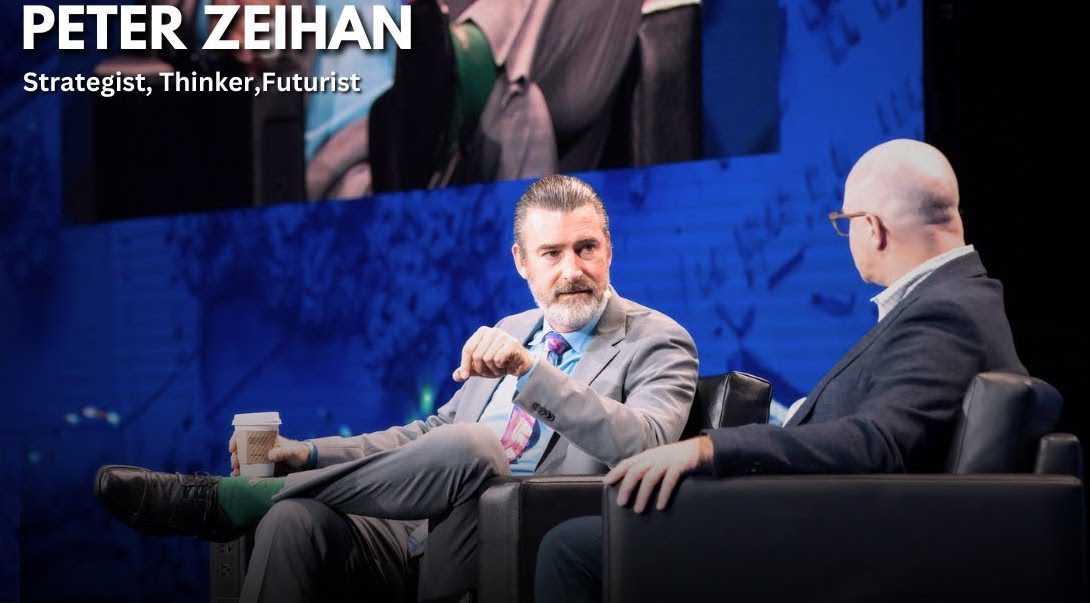U.S. Customs Revenue Tops $100 Billion for First Time Amid Tariff Surge
US revenue from customs duties this fiscal year surpassed $100 billion for the first time, reflecting higher tariffs imposed by the Trump administration.

Geopolitical strategist Peter Zeihan recently shared his insights on globalization, security paradigms, and the need for North America to strengthen its supply chains with FreightWaves’ Craig Fuller. Zeihan argues that globalization, which has been in place for the past 75 years, is no longer feasible due to changes in the cost of transport and the elimination of the security paradigm that allowed for multi-step manufacturing supply chains and multimodal shipping but nearshoring manufacturing and investing in short sea shipping could be a viable alternative to China.
China, Russia, and Iran, three of the five countries most dependent on maritime transport for exports, have a vested interest in disrupting their own neighborhoods to expand their reach and gain better prices for energy exports, according to Zeihan. However, China’s economic model is failing, and they know that they’re likely to suffer the most from supply chain disruptions due to Ukraine, which could ultimately result in economic collapse and famine.
Also Read: The End Of The World Is Just Beginning For Shipping
To rapidly adjust to the current state of global security, Zeihan believes that the US needs to double the size of its industry. He also emphasizes that the US has a significant geographic advantage with more miles of navigable waterway than the rest of the planet combined. By bringing back internal transport – Short Sea Shipping – in a meaningful way, the US could see runaway growth. However, the US labor force is facing a significant shortage, with the boomers retiring and being replaced by the smallest generation we’ve ever had, the Zoomers.
Zeihan also highlights the challenges faced by countries with aging populations, such as Germany and China, and the need for North America to rely on local sources to strengthen its supply chains. Building a more localized supply chain with Mexico and other Latin American countries would be critical to maintaining a stable and productive economy, he argues.
On inflation, Zeihan argues that the United States is heading for a period of sustained high inflation due to supply chain disruptions and other factors. Despite the challenges facing the United States and other countries, he remains optimistic about the future. To mitigate the impact of inflation, Zeihan suggests that the United States needs to focus on building out its industrial plant and investing in automation and AI technologies to drive productivity and reduce costs.
However, building a more localized supply chain will require significant investment in infrastructure and manufacturing capacity. Zeihan believes that the United States needs to double the size of its industrial plant to rapidly adjust to the current state of global security and ensure access to materials and goods needed for growth.
To overcome the shortage of skilled labor, which is rapidly accelerating due to the mass retirement of boomers, the United States will need to invest in education and training programs to develop a new generation of skilled workers capable of driving growth in a more localized supply chain.
Zeihan also highlights the challenges of transitioning to electric vehicles and green vessels in North America, noting the need for breakthroughs in material science to make it a viable option. Russia is currently one of the world’s top three suppliers of copper, nickel, cobalt, and aluminum, and all of those materials are “going to zero”. Developing new sources of these critical materials will be essential for driving the transition to electric vehicles and reducing dependence on fossil fuels.
In conclusion, Zeihan’s insights into globalization, global security, and the challenges facing countries with aging populations highlight the need for businesses and governments to adapt to a changing global economic landscape. Building a more localized supply chain, investing in infrastructure and manufacturing capacity, developing a new generation of skilled workers, and driving innovation in material science and automation technologies will be essential for driving growth and mitigating the impact of inflation in the years to come.
Also Read: The End Of The World Is Just Beginning For Shipping

Sign up for gCaptain’s newsletter and never miss an update

Subscribe to gCaptain Daily and stay informed with the latest global maritime and offshore news


Stay informed with the latest maritime and offshore news, delivered daily straight to your inbox
Essential news coupled with the finest maritime content sourced from across the globe.
Sign Up